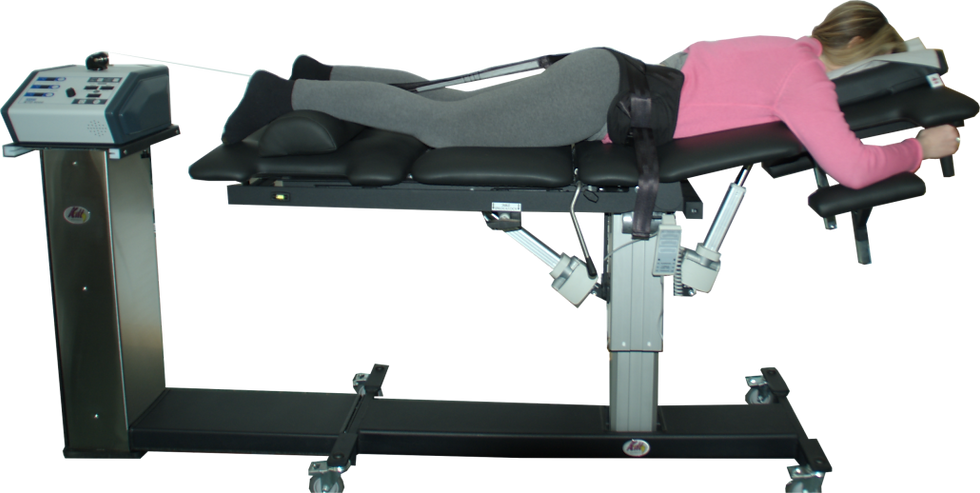Exploring the Benefits of Acupuncture for Alleviating Low Back Pain
- Solutions Alternative Healthcare
- Aug 20, 2025
- 3 min read
Low back pain is a prevalent issue impacting millions globally. Each year, it affects approximately 540 million people, causing discomfort and limiting daily activities. While common treatments include medication and physical therapy, an increasing number of individuals are turning to acupuncture for relief. This blog post explores how acupuncture can alleviate low back pain and enhance your quality of life.
Understanding Acupuncture
Acupuncture, a foundational practice of traditional Chinese medicine, involves inserting thin needles into specific points on the body. This method is rooted in the belief that energy, or "qi," flows through pathways known as meridians. Stimulating these points is said to restore balance and heal the body.
Recent studies indicate that acupuncture can effectively manage various types of pain, especially low back pain. Research suggests that acupuncture can lead to a pain reduction of up to 50% in some patients. It works by releasing endorphins—the body’s natural painkillers—and improving blood circulation, which aids in healing.
Benefits of Acupuncture for Low Back Pain
1. Pain Relief
Acupuncture is renowned for its ability to relieve pain effectively. For instance, one study published in the Archives of Internal Medicine showed that acupuncture reduced chronic low back pain more effectively than traditional treatments in nearly 60% of participants. By targeting acupuncture points like the lower back and legs, practitioners can significantly reduce discomfort and promote relaxation.
Moreover, acupuncture may lessen dependence on pain medications. In fact, a report from the National Institutes of Health found that nearly 70% of patients who used acupuncture for pain management reduced their use of prescription medications, avoiding the side effects that often accompany them.
2. Reduced Inflammation
Acupuncture is also helpful in decreasing inflammation, which is a common cause of low back pain. Research indicates that acupuncture can reduce markers of inflammation by as much as 30%. Increased blood flow and activation of the body's healing processes can address the root causes of low back pain effectively.
3. Improved Mobility
Chronic low back pain can restrict movement, making regular activities difficult. Studies show that patients receiving acupuncture report a 40% increase in flexibility and range of motion within a few sessions. This increased mobility allows individuals to participate more actively in exercises or hobbies they enjoy, enhancing overall well-being.
4. Complementary Therapy
Acupuncture can be an effective complementary treatment alongside chiropractic care and massage therapy. For example, a study demonstrated that patients who combined acupuncture with physical therapy experienced a 45% improvement in pain management compared to those receiving standalone treatments. This collaborative approach can provide comprehensive relief.
5. Minimal Side Effects
One of the significant benefits of acupuncture is its minimal side effects. When performed by a trained professional, the risks are low, making it a suitable option for those sensitive to medications. Statistics indicate that over 80% of patients report little to no discomfort during treatments, and side effects are rare.

What to Expect During an Acupuncture Session
If you're considering acupuncture for low back pain, knowing what to expect can help ease any concerns. The initial appointment typically begins with a consultation. A practitioner will ask about your medical history, symptoms, and daily activities.
Next, they will pinpoint specific acupuncture points tailored to your needs. Once the needles are inserted—usually at points on the lower back and legs—you may feel a slight sensation. Sessions generally last 30 to 45 minutes. Most patients feel relaxed and energized afterward.
Finding a Qualified Practitioner
Finding the right acupuncturist is crucial for effective treatment. Ensure the practitioner is licensed and has experience with low back pain. Recommendations from healthcare providers or professional organizations can be helpful.
Be proactive in asking about their methods, techniques, and what to expect during your treatments. A good practitioner will welcome your questions and provide clarity.
Final Thoughts
Acupuncture presents a viable alternative for those suffering from low back pain. Its potential to relieve pain, decrease inflammation, and enhance mobility makes it a noteworthy addition to pain management strategies. Always consult healthcare professionals before starting any new treatment to ensure it aligns with your needs.
If you are considering acupuncture, research qualified practitioners in your area, and engage in discussions with your healthcare provider. By embracing this ancient practice, you may discover the relief you have been seeking and significantly improve your overall quality of life.




Comments